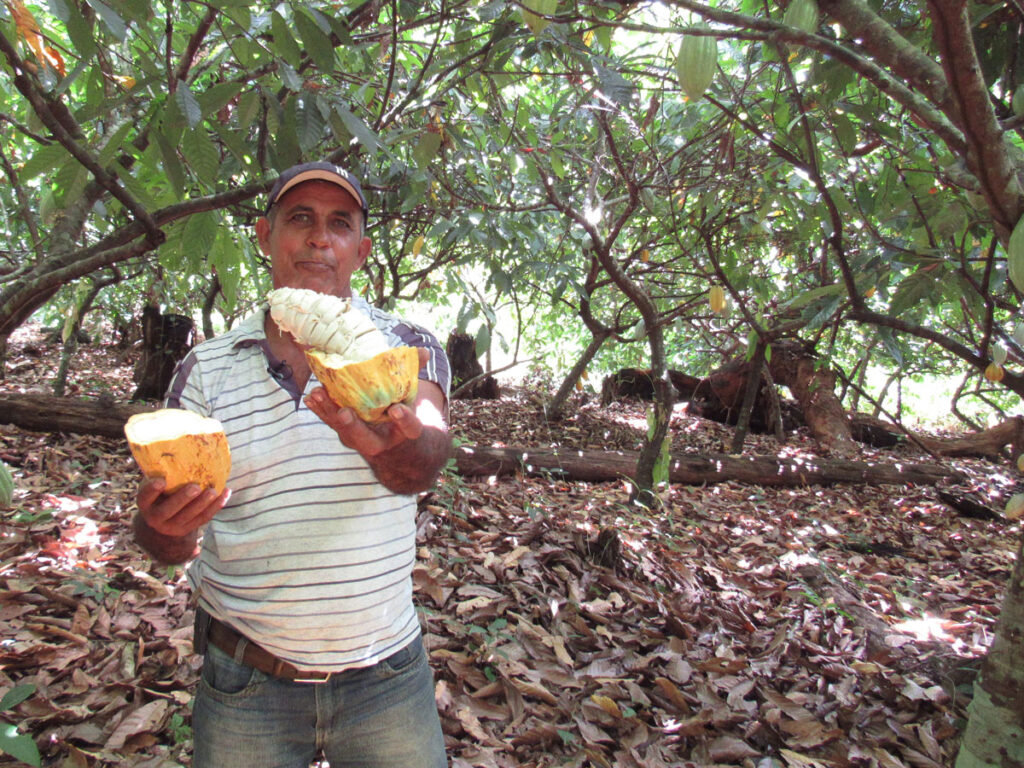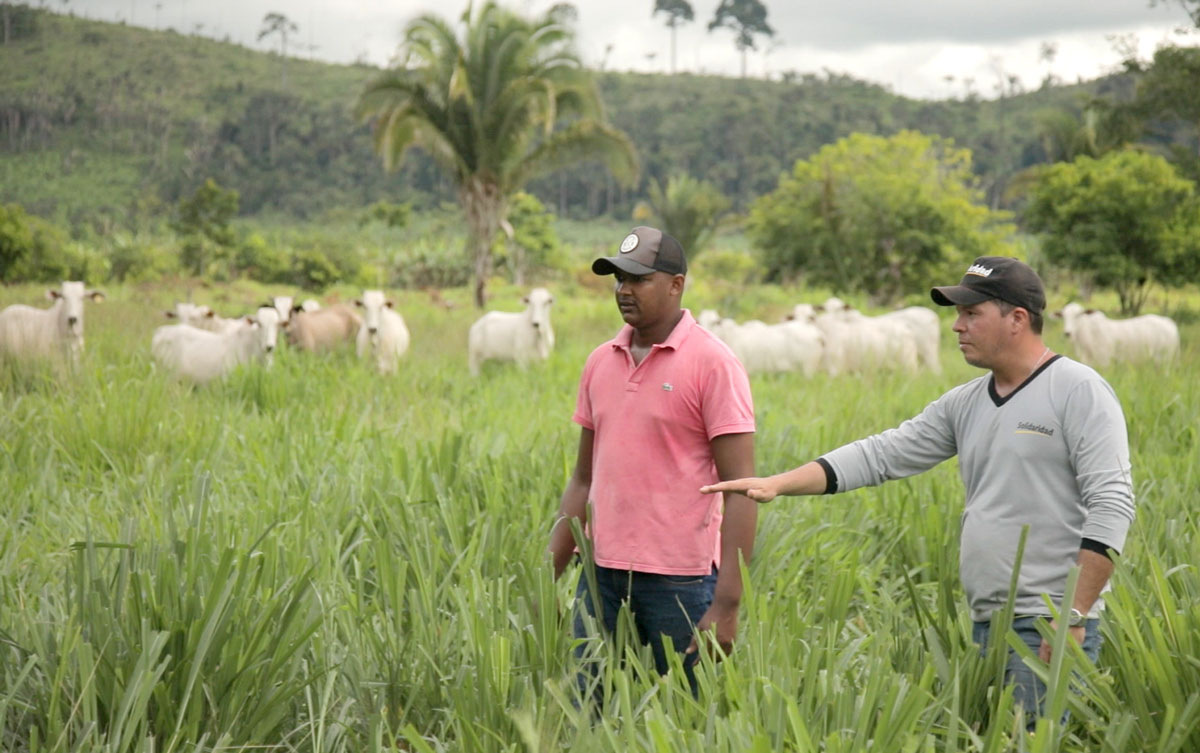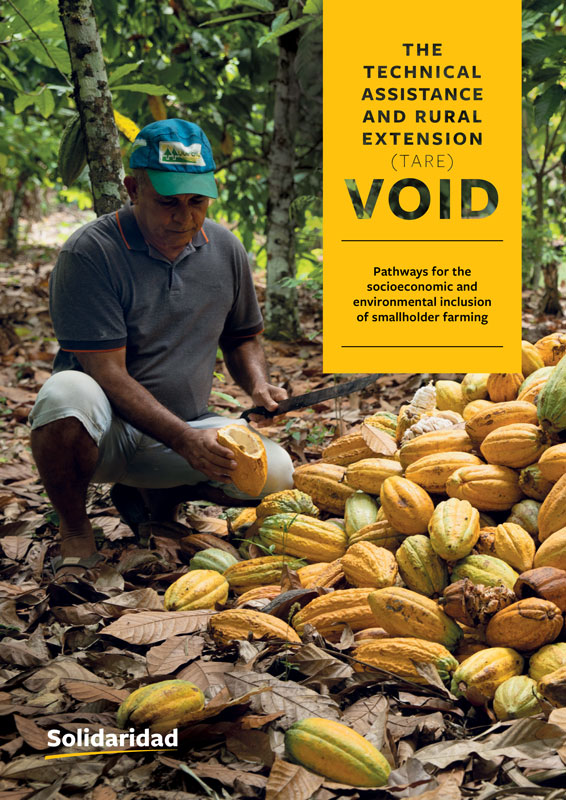The majority of economies in Latin America depend on agricultural production, yet in many rural areas access to rural extension and technical support services is limited. This has a clear negative impact on farm productivity and livelihoods, but it also leads to increased pressure on the local environment. An increase in quality extension support can contribute to best practices and a reduction in deforestation.
“The lack of good information is what impoverishes farmers the most,” said Clóvis Rios, a 37-year-old cocoa farmer in Brazil. “When we have information, we are able to dream big, to look further ahead.”
The lack of good information is what impoverishes farmers the most.
Clóvis Rios, a 37-year-old cocoa farmer in Brazil.
This sentiment summarizes the primary findings in a new study: The Void of Technical Assistance and Rural Extension: Paths for socioeconomic and environmental development including family farming (PDF).
The publication reviews public policies around rural technical assistance in Brazil from 1940 onwards, private sector services that have emerged in the absence of state support, and the benefits of a model implemented by Solidaridad in Pará, Brazil. The study sets its sights beyond academic circles to include producers and other private actors in the discussion around rural extension services and technical assistance.
Is it Rural Extension or Technical Assistance? According to Pablo Freire (Freire, 1983), rural extension is a process of exchange and co-development of knowledge between technicians and farmers. Rural extension focuses on training and exploring concepts together, whereas technical assistance is support from an experienced advisor who tells a producer what to do to solve a problem in the field.
Applying a rural extension and technical assistance model in the Brazilian Amazon
Clóvis lives in the municipality of Novo Repartimiento, one of the largest rural settlements in South America within the Amazon biome. Along with 880 other families, he received technical assistance and rural extension services from Solidaridad that demonstrated sustainable ways to increase cocoa production and quality on his parcel. Seeing an improvement in his earnings, he can now afford additional technical assistance, which helps him improve his quality, his yields and his earnings further.
The model implemented in Novo Repartimento aims to improve family businesses and reduce pressure on sensitive areas by combining sustainable production of high quality cocoa and cattle. The programme provides for individual technical visits, group training, demonstration units and the use of digital tools to facilitate the work of technicians.
Between 2016 and 2022, participants managed to increase cocoa productivity by 40 percent and achieve a 22.2 percent increase in breeding livestock. This resulted in an average gross income boost of 31.4 percent and a 74 percent reduction in deforestation among participating farms.

Calculations showed that with an investment of R$ 291.66 per month in rural extension services, a producer can earn more than nine times his/her investment (accounting for the adoption costs, yields obtained, and the average prices of cocoa and cattle). The model showed strong economic viability and environmental sustainability over time.
“Knowledge is addictive,” said Paulo Lima, Solidaridad’s cocoa and livestock manager in Brazil. “Once producers begin to understand more about the soil, cocoa, livestock, the technologies that can be used, and take a grip of this knowledge, they begin to search on their own, especially on the internet.
“They count on the technician, but they also lean on YouTube, and other people who add knowledge to their own empirical experience observing nature. It’s fantastic.”
Technical assistance, rural extension and forest conservation
The study demonstrates the importance of technical assistance and rural extension for environmental conservation. Deforestation in areas with a high concentration of family farmers is often driven by poverty. The lack of formal training in best practices results in low productivity and the need for farmers to expand further to support their families.
“Farmers do not cut trees because they don’t like forests, but out of necessity. When they are able to access information that allows them to improve productivity on the land they already have available, they begin to see the forest as an asset rather than an obstacle to survival,” Lima said.
When the Solidaridad team first arrived the Tuerê settlement, in Novo Repartimento, they worked to gain the trust of the producer families by developing an in-depth understanding of the community’s needs. Then they worked together to find solutions, and secure external financing together with the producers.
“This kind of relationship on a more equal level built mutual respect,” added Lima. Today, the experience is being replicated in other locations prone to deforestation (read more here).
“Knowledge of good practices triggers a process that leads families to improve their livelihoods, and care for the environment. Technical assistance and rural extension gives farmers confidence in making decisions, and this dignity for families. And with dignity, families are more willing to reduce deforestation and preserve their forests,” Lima concludes.
Read the “The Void of Technical Assistance and Rural Extension: Paths for socioeconomic and environmental development including family farming.”
This piece was originally published in Spanish on the Solidaridad America Latina page.


